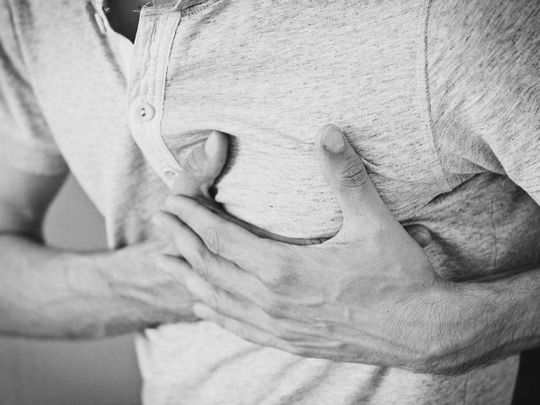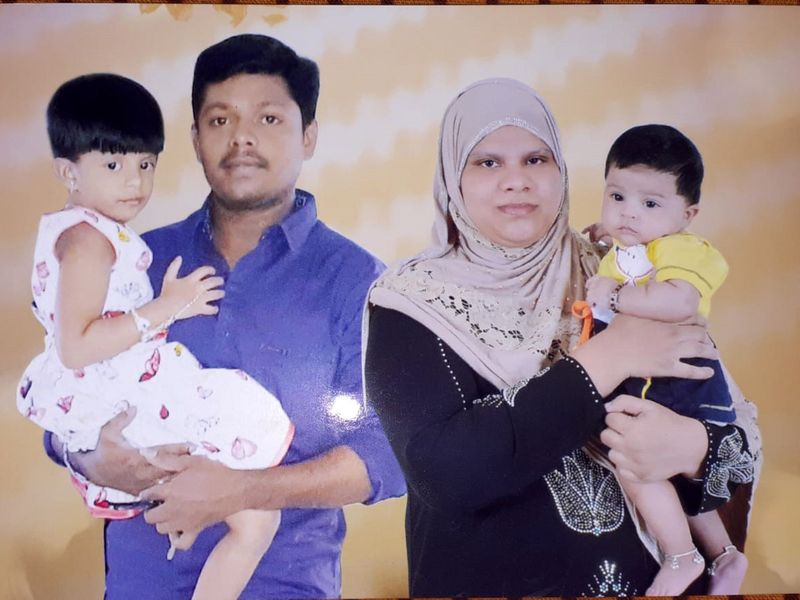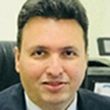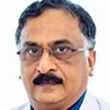
Dubai: The onset of Cardio Vascular Disease (CVD) happens ten years earlier in the UAE, on an average, compared to the rest of the world. While in the rest of world the average age for CVD is 65 years, in the UAE it is 55 years as per two registries on heart disease. These include the Gulf Race registry published in 2009, which has the record for the entire Gulf Cooperation Council (GCC) countries, including the UAE, and a new registry created by Cleveland Clinic Abu Dhabi, published in 2019. Specifically for UAE, both the registries have come to the same conclusion.
On the occasion of World Heart Day, which is observed on September 29 every year, it is imperative to examine this alarming trend.
What is CVD?
CVD is an umbrella term used to describe a group of all heart-related diseases, such as Coronary Artery Disease (CAD), atherosclerosis (thickening of the arterial walls due to fatty deposits), Arrhythmia (change in heart rhythm, leading to angina or chest pain, heart attacks and ischemic strokes — many of which can be fatal. According to the World Health Organisation (WHO), 40 per cent of the deaths annually around the world.
Why do people in the UAE suffer from higher incidence?
According to Dr Carl B Kapadia, cardiologist at NMC Royal, Khalifa City and Dr Paul Stanley, consultant interventional cardiologist at NMC Speciality Hospital say that although people in UAE are not as obese as their western counterparts, they still have a higher disease burden. “This means that at lower weight, people in the UAE are more likely to have diabetes, high cholesterol and high blood pressure, while that is not the case in countries such as the United States where patients tend to be heavier but less sick,” said Dr Stanley.
Dr Kapadia explained: “Experts blame the genetic component of people in the UAE to render them prone to central obesity, which is associated with diabetes and heart disease and as a result, patients in the UAE as young as in their 20s are having heart attacks.”
Gulf News took a look at different case studies from around four hospitals in UAE, which reaffirmed the early incidence of heart diseases in the country.
Case study 1: A ‘smoking’ heart
Mohamed Nawabjan, a 29-year-old Indian expatriate working as a driver in Abu Dhabi, leading a fairly active lifestyle and maintaining a normal weight, suddenly developed chest pain, developed a sharp pain in his left arm and the left side and presented himself at the Emergency in NMC Specialty Hospital Abu Dhabi in July 2020. At the time of admission, he had suffered the pain for five hours. Timely intervention by Dr Stanley averted a crisis. He used a thrombectomy device to suck out the thrombus (clot) unblocking the affected artery within an hour of the patient’s arrival. Dr Stanley explained: “Mohamed was a chronic smoker, having 15 cigarettes a day for the last decade-and-a-half. He also had a family history of diabetes.”

Studies have revealed that in young and seemingly healthy individuals, heart attacks turn out to be more fatal as they occur in a larger area of the heart. Hence, in Mohamed’s case, Emergency Primary Angioplasty had to be done during an ongoing heart attack, explained Dr Stanley.
Case study 2: A ‘heavy’ heart
Among the leading causes of early heart disease is obesity. It is also linked to diabetes and high cholesterol. Take the case of Utkarsh Srivastava, 27, a Quantity Surveyor with a company in Abu Dhabi. In February this year, Srivastava suffered an acute heart attack and was brought to the Emergency at NMC Hospital, Khalifa City, at 2am. Dr Kapadia noted that the patient was young, but grossly overweight and had to be immediately wheeled to the cath lab to conduct a life-saving angioplasty to remove a nearly 100 per cent blockage in the Left Anterior Descending Artery (LAD). Timely intervention saved Srivastava’s life.
Case study 3: Revived three times
46-year-old Indian businessman Pankaj Parpia, who had his first heart attack in 2006 at the age of 32, presented himself at the Emergency section in Prime Hospital with an abnormal heart rhythm, low blood pressure and kidney failure due to reduced heart function, in August 2020. Parpia’s wife Bhavana told Gulf News: “My husband has always been a non-smoker, non-drinker and has had a fairly optimum body weight. He has no family history of heart disease and yet he suffered his first heart attack at 32.”
Dr Murali Krishna Neelkanthan, specialist interventional cardiologist at the hospital, who conducted a cardiac surgery, said: “The patient came to us nearly 3-4 days late and the scar of the heart attack 14 year ago perhaps caused the arrhythmia, which resulted in low blood pressure. The patient, in fact, suffered a cardiac arrest and had to be revived three times with a defibrillator. He was put on ventilator twice. After the first revival, he was on ventilator and we discovered a tight block in his vocal chords. Our anesthesiologist Dr Nalin Sharma had to conduct and endoscopy the second time to place the ventilator tube. The third time, he did not need the ventilator and after he was revived, he was able to recover and was discharged after a month in hospital.”
Parpia, whose kidneys suffered damage, has been put on dialysis temporarily and has already had 80 per cent of his kidney functions revived. He will soon need a surgery to place a heart device to regulate his heart rhythm said Dr Neelkanthan. The device will help resolve the issue and the family is still looking at the options available for the surgery.
Case study 4: Stress, the main trigger
Tejas Bansilal Parekh, 58, an Indian businessman, was rushed to Emergency at Aster Hospital Mankhool, in June 2020, with a severe chest pain. A vegetarian, non-smoker, non-drinker and with no history of diabetes, Parekh probably faced some stress in his profession according to the doctors who attended to him. An angiogram indicated that he had 90 per cent blockage in three major arteries when Dr Naveed Ahmed, specialist interventional cardiologist, examined him. So Parekh was rushed to Aster Hospital, Al Qusais, where Dr Pradeep Chand Nair conducted an open-heart surgery. “We decided to do beating heart surgery where the heart is not stopped during the surgery. This provides a faster recovery period,” explained Dr Nair.
Parekh, who was discharged within three weeks of the surgery, has recovered well. He told Gulf News he was feeling very energetic and had slowly initiated mild exercises such as brisk walking and was waiting for his check-up before starting on a more intense workout schedule. Parekh said: “I want hospitals like Aster to introduce a wellness plan for health insurance for senior residents. That will work well for preventive care and avert major episodes waiting to happen.”
Why people are suffering heart diseases and heart attacks at an early age?
According to Dr Faisal Hasan, staff physician at the cardiac and vascular institute, Cleveland Clinic Abu Dhabi, the causes are multifactorial.
“Our own registry on heart disease has deduced the early onset of heart diseases in the UAE by ten years and that is a big deal. From our experience we see that 50 per cent of the patients with heart disease are Type II diabetics. A high rate of obesity from childhood is also one of the reasons contributing to not just diabetes, but heart disease too. Added to this are other lifestyle diseases such as hypertension, high cholesterol. Besides, in the UAE, smoking is an important factor in thickening of arteries that lead to ischemic strokes.
Preventive strategy required
Dr Hassan said it was important to educate the community and at a very primary level. “All these health conditions together, in conjunction with sedentary lifestyles and high sugar, high fat content in food greatly accelerate the early onset of heart diseases. There is a need to begin educating individuals at the school level and making their families aware before all the lifestyle diseases trigger CVD,” he said.
Tips for a healthy heart
• Include daily aerobic exercise of moderate intensity for at least 30 minutes (e.g. brisk walking, cycling, swimming etc).
• Studies have proved that the South Asian expatriate population is genetically predisposed to coronary artery blockage. Therefore, they need to adopt healthy lifestyles and be regular with their heart check-ups.
• Healthy eating habits are a must. Completely eliminate unhealthy fat, processed food and high-sugar food from your diet. The American Heart Association guidelines call for healthy diets rich in fresh fruit, vegetables, complex carbohydrates and lean proteins while avoiding salt, sugar and animal-based fat. Lastly, avoiding smoking is of paramount importance.
• Have a regular routine of 45 minutes of rigorous physical activity every day. Besides that, always take the stairs and avoid elevators as much as possible.
• Avoid stress. High levels of stress increase cholesterol, triglycerides, blood sugar and blood pressure — all of which have a very negative impact on heart health.
Source: Dr Carl Kapadia, Dr Paul Stanley, Dr Pradeep Chand Nair, Dr Murali Krishan Neelkantan and Dr Faisal Hasan.
"occur" - Google News
September 28, 2020 at 01:01PM
https://ift.tt/3i6DeCB
World Heart Day: Why heart diseases occur 10 years early in the UAE compared to rest of the world - Gulf News
"occur" - Google News
https://ift.tt/2UoDqVw
https://ift.tt/2Wq6qvt
Bagikan Berita Ini



















0 Response to "World Heart Day: Why heart diseases occur 10 years early in the UAE compared to rest of the world - Gulf News"
Post a Comment